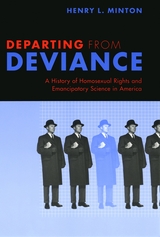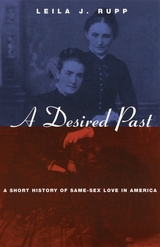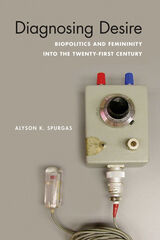7 start with D start with D



"Most extraordinary about Leila J. Rupp's indeed short, two-hundred-page history of 'same-sex love and sexuality' is not that it manages to account for such a variety of individuals, races, and classes or take in such a broad chronological and thematic range, but rather that it does all this with such verve, lucidity, and analytical rigor. . . . [A]n elegant, inspiring survey." —John Howard, Journal of American History

Winner, 2020 LASA Best Book Award in the Humanities (Southern Cone Section)
Winner, 2020 CLAH Bolton-Johnson Prize
Honorable Mention, 2020 Alfred B. Thomas Book Award
Under dictatorship in Argentina, sex and sexuality were regulated to the point where sex education, explicit images, and even suggestive material were prohibited. With the return to democracy in 1983, Argentines experienced new freedoms, including sexual freedoms. The explosion of the availability and ubiquity of sexual material became known as the destape, and it uncovered sexuality in provocative ways. This was a mass-media phenomenon, but it went beyond this. It was, in effect, a deeper process of change in sexual ideologies and practices. By exploring the boom of sex therapy and sexology; the fight for the implementation of sex education in schools; the expansion of family planning services and of organizations dedicated to sexual health care; and the centrality of discussions on sexuality in feminist and gay organizations, Milanesio shows that the destape was a profound transformation of the way Argentines talked, understood, and experienced sexuality, a change in manners, morals, and personal freedoms.

In Diagnosing Desire: Biopolitics and Femininity into the Twenty-First Century, Alyson K. Spurgas examines the “new science of female sexuality” from a critical, sociological perspective, considering how today’s feminist-identified sex researchers study and manage women with low desire. Diagnosing Desire investigates experimental sex research that measures the disconnect between subjective and genital female arousal, contemporary psychiatric diagnoses for low female desire, new models for understanding women’s sexual response, and cutting-edge treatments for low desire in women—including from the realms of mindfulness and alternative healing.
Spurgas makes the case that, together, all of these technologies create a “feminized responsive desire framework” for understanding women’s sexuality, and that this, in fact, produces women’s sexuality as a complex problem to be solved. The biggest problem, Spurgas argues, is that gendered and sexualized trauma—including as it is produced within technoscientific medicine itself—is too often ignored in contemporary renderings. Through incisive textual analysis and in-depth qualitative research based on interviews with women with low desire, Spurgas argues for a more radical and communal form of care for feminized—and traumatized—populations, in opposition to biopolitical mandates to individualize and neoliberalize forms of self-care. Ultimately, this is a book not just about a specific diagnosis or dysfunction but about the material-discursive regimes that produce and regulate femininity.

Be sexy but not sexual. Don't be a prude but don't be a slut. These are the cultural messages that barrage teenage girls. In movies and magazines, in music and advice columns, girls are portrayed as the object or the victim of someone else's desire--but virtually never as someone with acceptable sexual feelings of her own. What teenage girls make of these contradictory messages, and what they make of their awakening sexuality--so distant from and yet so susceptible to cultural stereotypes--emerges for the first time in frank and complex fashion in Deborah Tolman's Dilemmas of Desire.
A unique look into the world of adolescent sexuality, this book offers an intimate and often disturbing, sometimes inspiring, picture of how teenage girls experience, understand, and respond to their sexual feelings, and of how society mediates, shapes, and distorts this experience. In extensive interviews, we listen as actual adolescent girls--both urban and suburban--speak candidly of their curiosity and confusion, their pleasure and disappointment, their fears, defiance, or capitulation in the face of a seemingly imperishable double standard that smiles upon burgeoning sexuality in boys yet frowns, even panics, at its equivalent in girls.
As a vivid evocation of girls negotiating some of the most vexing issues of adolescence, and as a thoughtful, richly informed examination of the dilemmas these girls face, this readable and revealing book begins the critical work of understanding the sexuality of young women in all its personal, social, and emotional significance.

In this lively book, Leila J. Rupp and Verta Taylor take us on an entertaining tour through one of America's most overlooked subcultures: the world of the drag queen. They offer a penetrating glimpse into the lives of the 801 Girls, the troupe of queens who perform nightly at the 801 Cabaret for tourists and locals. Weaving together their fascinating life stories, their lavish costumes and eclectic music, their flamboyance and bitchiness, and their bawdy exchanges with one another and their audiences, the authors explore how drag queens smash the boundaries between gay and straight, man and woman, to make people think more deeply and realistically about sex and gender in America today. They also consider how the queens create a space that encourages camaraderie and acceptance among everyday people, no matter what their sexual preferences might be.
Based on countless interviews with more than a dozen drag queens, more than three years of attendance at their outrageous performances, and even the authors' participation in the shows themselves, Drag Queens at the 801 Cabaret is a witty and poignant portrait of gay life and culture. When they said life is a cabaret, they clearly meant the 801.
READERS
Browse our collection.
PUBLISHERS
See BiblioVault's publisher services.
STUDENT SERVICES
Files for college accessibility offices.
UChicago Accessibility Resources
home | accessibility | search | about | contact us
BiblioVault ® 2001 - 2024
The University of Chicago Press









